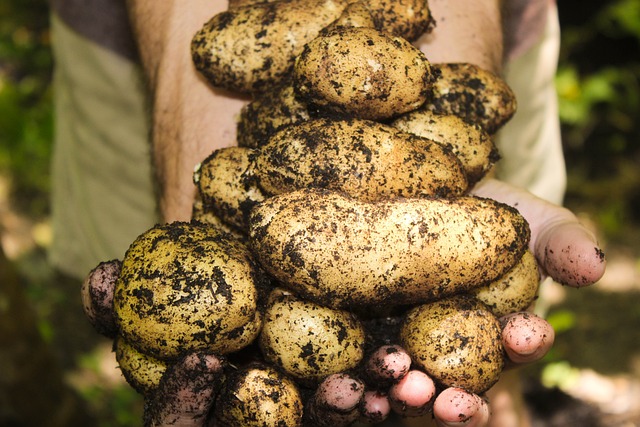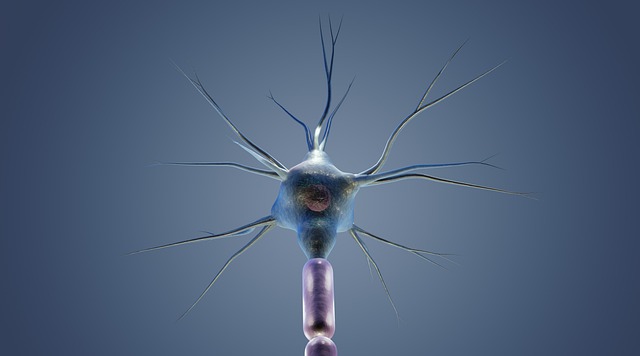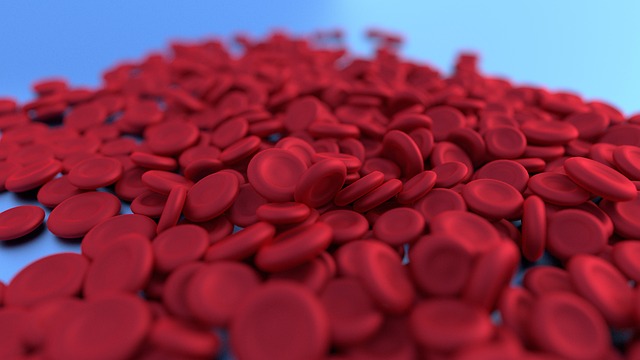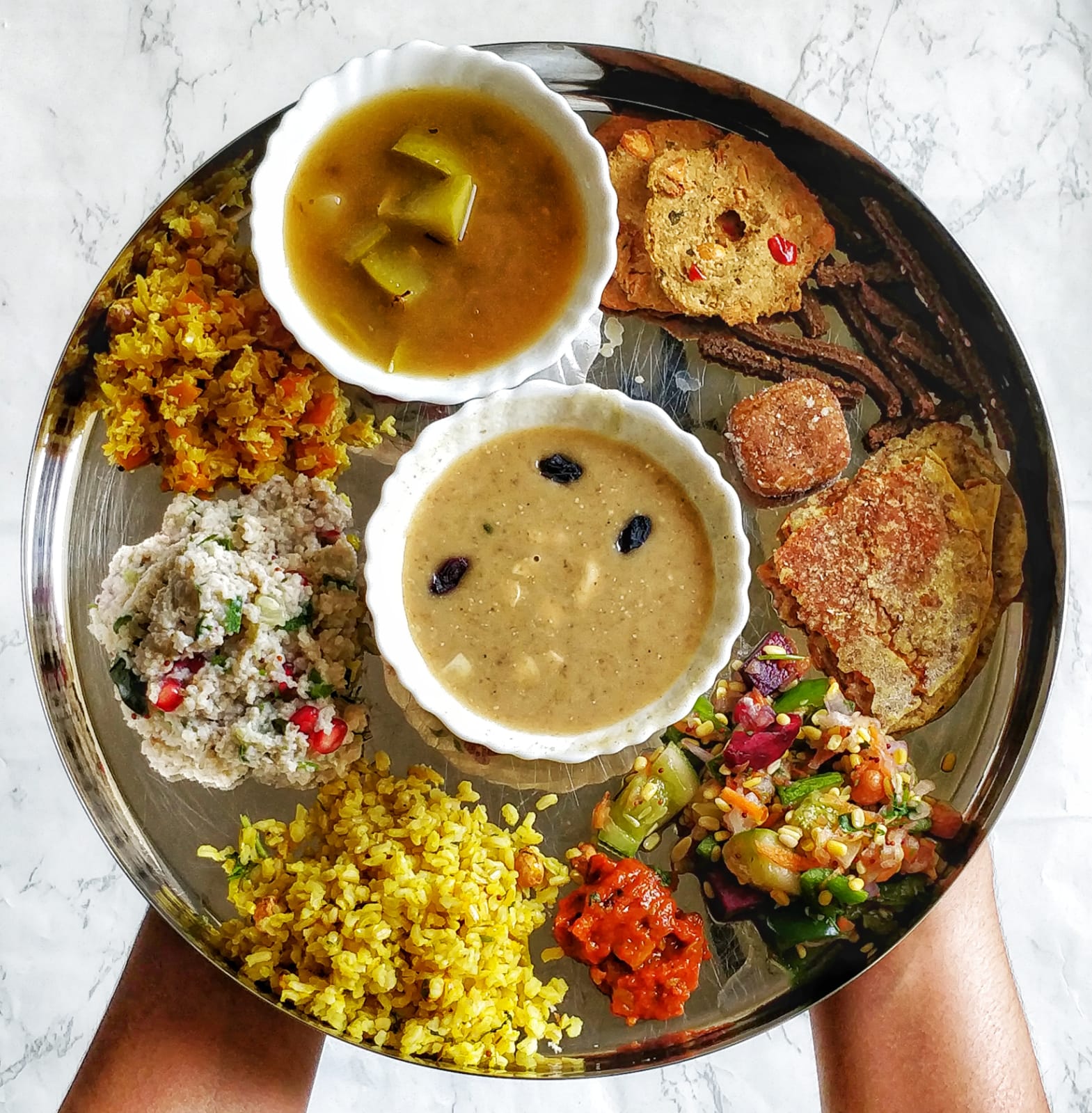Top Foods With Vitamin B12 You Should Eat If You Have A B12 Deficiency
Vitamin B12 is essential for good health, and its deficiency can lead to a range of serious symptoms.
Like a lighthouse beaming bright in the dark night sky, there was easy way to get enough vitamin B12 – but it’s important to know which ones deliver on this crucial nutrient.
To provide clarity amidst the fog of confusion about what constitutes a healthy diet, this article will shine a light on the top vitamin B12-rich foods one should eat if they have been diagnosed with an existing deficiency.
With this knowledge at hand, those suffering from a vitamin B12 deficiency don't need to feel restricted by their condition – instead they can enjoy tasty dishes safe in the knowledge that they're getting all their necessary nutrients too!
By understanding how different food items stack up when it comes to supplying our bodies with enough vitamin B12 we can arm ourselves with the information needed to make informed dietary decisions.
In addition to exploring various sources of this vital nutrient, this article will present tips on how best to incorporate them into daily meal plans so readers can start making strides towards better nutrition today.
What Is Vitamin B12?
Vitamin B12 is a critical nutrient that must be acquired from dietary sources or supplements in order to prevent deficiencies.
As a plant based physician, I'm particularly mindful of its importance.
Vegan are prone to developing Vitamin B12 deficiency easily.
Despite popular belief, so are vegetarians and non-vegetarians!
Deficiencies can lead to megaloblastic anemia, pernicious anemia or other serious health conditions related to the lack of this essential vitamin.
However, it’s crucial to understand where Vitamin B12 really comes from: bacteria!
It doesn't come from plants or animals directly but rather from bacteria that are present in soil and water.
This means that we need adequate exposure to these environments for our body to absorb enough Vitamin B12 through food and supplements.
When we were living natural lifestyle in the middle of nature, we would have been getting enough Vitamin B12.
However, with our sanitised lifestyles in today's cities, this may not be happening anymore.
In addition, those with low levels of intrinsic factor such as the elderly may not be able to absorb this vitamin efficiently - making them even more prone to developing deficiency symptoms such as fatigue and cognitive impairment.
To overcome this challenge, Vitamin B12 should become part of one’s daily diet - whether it is from supplements or fortified like foods like the Flaxseed B12 Laddu or fortified cereals – all excellent sources of this important nutrient which can help reduce the risk of developing any type of nutritional deficiency related to inadequate intake of Vitamin B12.
B12 Comes From Bacteria, Not Plants Or Animals
Vitamin B12 is essential for the healthy function of our body, yet it does not come from plants or animals but rather bacteria.
This is why Vitamin B12 deficiency may have more to do with modern lifestyle than a vegetarian or vegan diet.
This fact may be surprising to some; hence it's important to understand this in order to ensure we maintain adequate levels of vitamin B12 in our diet.
Vitamin B12 is produced by certain bacteria found in soil and water, which is why humans were able to get enough of this nutrient when living close to nature.
This is because the Vitamin B12 could easily be absorbed from exposure to these environments.
However, due to our modern sanitized lifestyles, this may not be happening anymore.
As a result, we may not be able to get exposed to enough Vitamin B12 and absorb this vitamin efficiently to keep our blood levels of B12 normal - making us prone to developing deficiencies.
To make sure you are getting enough Vitamin B12, it’s important to have a consistent, dependable source of Vitamin B12 intake in your daily lifestyle.
In summary, when considering dietary sources for sufficient amounts of vitamin b12, one must look beyond traditional animal based foods as these foods come with higher risk of several chronic diseases - leaving other options such as fortified foods or supplements.
Why Are Animal Foods Unhealthy Even If They Contain Vitamin B12?
As complex as the topic of dietary nutrition appears to be, understanding animal foods and their effects on health when it comes to vitamin b12 is like untangling a ball of yarn.
Vitamin B12 plays an essential role in maintaining overall health; however, many people rely solely on animal-based products for this nutrient instead of exploring fortified plant based sources or dietary supplements.
Animal foods contain high levels of vitamin b12; however, they can also lead to other deficiencies and higher risk of chronic diseases.
Consuming meat has been linked with higher risk of cancer, diabetes, hypertension and heart disease.
Additionally, consuming regular amounts of fish have been associated with increased risk for neural tube defects due to mercury contamination.
Therefore, relying only on animal food sources may put individuals at greater risk for other diseases even though these foods provide direct access to vitamin b12.
A balanced diet containing a variety of whole plant-based foods can offer beneficial nutrients while limiting the intake from potentially hazardous sources such as mercury contaminated fish or processed meats.
In addition to this, a regular, reliable source of Vitamin B12 can protect you from the lack of Vitamin B12 in urban environments.
A healthful diet should include ample fruits and vegetables which supply important antioxidants that protect against cellular damage caused by free radicals along with fortified grains and you could even add in plant-based dairy alternatives and meat alternatives providing additional sources of key micronutrients such as calcium, magnesium, potassium and zinc which play vital roles in healthy bodily functions.
Fortified Foods
Fortified foods are a great dietary option for those suffering from a vitamin B12 deficiency.
Fortified foods can provide an additional daily intake of vitamin B12 to ensure optimal cognitive function and overall health.
There is a wide variety of fortified foods available that contain vitamin B12, ranging from breakfast cereals and breads to nut milks and meat analogues.
Our favourite fortified food is Sampoorna Ahara's Flaxseed B12 Laddu, which is made of three main -ingredients - Flaxseed, Dates & Vitamin B12.
These food sources not only offer an alternative to unhealthy products with their rich content of vitamins, minerals, antioxidants and other vital nutrients; they can also help individuals meet their recommended daily intake of vitamin B12 without having to resort to potentially unhealthy animal products.
With the availability of numerous options when it comes to fortified foods containing vitamin B12, people who have been diagnosed with a deficiency no longer have limited meal choices or need worry about missing out on this important nutrient due to dietary restrictions.
From tasty laddus to flaxseed B12 crackers to fortified milks and even fortified vegan burgers made with black beans and quinoa – these fortified meals can make all the difference in helping maintain proper levels of vitamin B12 for optimal cognitive functioning.
Flaxseed B12 Laddu From Sampoorna Ahara
The search for healthful and nutritious sources of Vitamin B12 is an ongoing quest.
Flaxseed B12 laddu from Sampoorna Ahara, a traditional South Indian recipe with a healthy twist, may offer one solution to this conundrum.
This variation on the classic laddu combines flaxseeds with dates and cardamom powder, creating a flavor profile that's as delicious as it is nourishing.
This particular recipe also packs a nutritional punch thanks to its inclusion of Vitamin B12.
This essential nutrient helps the body produce healthy red blood cells and other necessary elements for proper tissue function.
Symptoms of Vitamin B12 deficiency can include conditions such as dry skin, hair fall, irreversible nerve damage, heart health issues and more – making regular consumption of foods high in Vitamin B12 all the more important.
The recommended daily allowance of Vitamin B12 stands at 50 mcg of Vitamin B12 daily; luckily, just two servings of Sampoorna Ahara’s Flaxseed B12 Laddu provide over 100 mcg of Vitamin B12 per day!
Vitamin B12 Supplements
Vitamin B12 is a vital nutrient for the human body, and having an adequate amount of it in your system can prevent deficiency.
As such, supplementation with vitamin B12 may be necessary to boost levels.
While there are various forms of Vitamin B12 available as supplements on the market, understanding dietary allowances and how much you should take is important.
To begin with, adults over 19 years old require 50 mcg Vitamin B12 per day based on the latest research on Dietary Reference Intakes.
This could be taken as a vitamin b12 supplement tablet, or as Vitamin B12 injections at a nearby clinic.
It is recommended that individuals who have been diagnosed with a mild, moderate or severe Vitamin B12 deficiency take at least 1,000 mcg per day until their levels return to normal before then dropping down to 50 mcg daily for maintenance doses.
For those aged 65 years and above, a daily supplement of 1,000 mcg of Vitamin B12 is essential to prevent a deficiency of Vitamin B12.
If you have peptic ulcer disease or low hydrochloric acid due to antacid intake, celiac disease, gastroesophageal reflux disease, or any other condition that affects active Vitamin B12 absorption, you may not be able to absorb enough Vitamin B12 from oral vitamin B12 supplements.
That's why the daily recommend dosage has been fixed at 50 mcg of Vitamin B12 daily, to ensure you get adequate Vitamin B12 on a regular basis and protect you from getting into a Vitamin B12 deficient state.
Different forms of Vitamin B12 include cyanocobalamin (the most popular, stable, safe, effective and common form), hydroxocobalamin, adenosylcobalamin and methylcobalamin which all work together to maintain healthy levels in the body; however this will depend on individual cases so consulting with a physician or dietician would be beneficial when deciding what supplement intake is best suited for one’s needs.
Generally speaking, cyanocobalamin is the preferred choice except if you are suffering from kidney disease.
Therefore, if you believe you have a vitamin b12 deficiency, taking supplements could be an effective way to ensure that your body has enough vitamin b 12 - helping keep its associated health benefits intact!
What Is Vitamin B12 Deficiency?
Vitamin B12 deficiency is a serious health condition that can have long-term and far-reaching consequences.
It is one of the key cardiovascular risk factors and could even increase your risk of high blood pressure, damage to nerve cells,
It's essential to be aware of the signs, symptoms, and underlying causes of this vitamin deficiency in order to take proactive steps for prevention and treatment.
Like an iceberg looming beneath the sea, it's important to know what lies below the surface before taking action.
Ascertaining whether or not one has a Vitamin B12 deficiency requires knowledge about its characteristics.
In general terms, it occurs when the body does not absorb enough vitamin B12 from food sources such as fortified cereals and breads, or supplements, or lives in a sanitised environment without exposure to Vitamin B12 producing bacteria.
Symptoms of Vitamin B12 deficiency may include:
- Fatigue
- Depression
- Memory loss
- Numbness/tingling in feet/hands
- Increase risk of heart disease, coronary heart disease or cardiovascular disease
- Confusion
- Difficulty with balance
- Poor concentration
- Sore tongue
- Swollen red tongue (glossitis)
- Diarrhea or constipation
- Pale skin
- Yellowing of eyes & skin (jaundice)
- Abdominal pain/bloating/gas
- Heart palpitations & shortness of breath during exercise.
Additionally, those at risk include older adults over age 50 due to impaired absorption ability with age.
Infants born to mothers deficient in breast milk production or women whose bodies do not contain sufficient levels of Vitamin B12 to ensure daily Vitamin B12 transfer into their breastmilk .
How is Vitamin B12 deficiency diagnosed?
Unfortunately, a blood test of Serum Vitamin B12 Levels does not give you the complete picture, because some of it be in an inactive form.
Homocysteine levels are a marker that rises when you have a Vitamin B12 deficiency, but it also rises when you have a folic acid deficiency, so that isn't reliable either.
The best test to diagnose a Vitamin B12 deficiency is through the Urine Methyl Malonic Acid (Urine MMA) Test. This is sensitive and specific to a deficiency of Vitamin B12, unlike homocysteine levels.
Vitamin B12 is involved in many biochemical reactions within the body making it imperative to recognize any potential deficiencies quickly so proper intervention measures can be taken if needed.
Should You Take Vitamin B12 Supplements?
Vitamin B12 is a water soluble vitamin, essential for healthy functioning of the body.
Deficiency in this important vitamin can have serious implications like irreversible neurological symptoms if left untreated.
Thus it's imperative to understand whether you should take supplements or not and how much amounts of Vitamin B12 are optimal for your health.
The risk of developing Vitamin B12 deficiency increases with age due to reduced digestive absorption.
Besides fortified foods and dietary sources, intramuscular injections and oral supplementation are other ways to get adequate amounts of Vitamin B12 into the body.
Some experts recommend taking Vitamin B12 supplements even when there’s no sign of deficiency as prevention measure against its potential long term consequences.
Consulting a doctor would be an ideal course of action before considering any form of supplement intake.
As such, care must be taken while deciding on whether or not to take Vitamin B12 supplements; seeking medical advice and guidance is always recommended prior to making any decisions about one's own health and well-being.
Ultimately, depending upon individual needs and health status, an informed decision can be made regarding the best option for maintaining proper levels of Vitamin B12 in order to ensure good physical health and wellbeing going forward...
Pernicious Anemia
Pernicious Anemia is a severe form of Vitamin B12 deficiency that can cause neurological damage, as well as an increased risk for certain types of cancers like stomach cancer.
It has been studied extensively in elderly subjects to determine the amount of daily requirements needed from oral or injected Vitamin B12 supplements or coenzyme forms.
Research into Pernicious Anemia shows that it is important to ensure adequate intake, and also that excess Vitamin B12 may be simply be flushed out through urine, making it safe for most people.
By understanding the risks associated with inadequate vitamin B12 levels and taking steps to supplement accordingly, we can work together towards better health outcomes for everyone.
Conclusion
Vitamin B12 is an essential vitamin for many bodily functions and it can be found in a variety of food sources. A deficiency of this nutrient can lead to serious health issues, such as pernicious anemia.
However, fortified foods like Sampoorna Ahara's Flaxseed B12 Laddus are excellent sources of Vitamin B12 that you can include in your diet to help prevent or treat a deficiency.
Including fortified foods or supplements into your daily diet will ensure that you reach the recommended dietary allowance for vitamin b-12 (50mcg/day or 1,000 mcg/day for adults above 65 years of age) and avoid the risk associated with a vitamin b-12 deficiency – from nerve damage to digestive issues.
Eating a wide variety of foods from these different whole plant based categories keeps your digestive health robust and ensures optimal absorption of vitamin b-12.
Frequently Asked Questions
What Is The Recommended Daily Intake Of Vitamin B12?
It is important to understand the recommended daily intake of vitamin B12 for individuals with a deficiency.
This vital nutrient assists in red blood cell formation and neurological functioning, so ensuring an adequate amount is essential for overall health and wellbeing.
We recommend that adults age 10 or older consume 50 micrograms or mcg of Vitamin B12 per day.
It should be noted that this recommendation may vary depending on individual needs:
- Children below age 10 are recommended half dosage i.e., 25 mcg of Vitamin B12 per day
- Those over 65 years old require more since they have difficulty absorbing it from food sources, up to 1,000 mcg of Vitamin B12 per day.
- For adults between age 10 and 65 years, you can choose either a daily dose of 50 mcg or a weekly dose of 2,500 mcg of Vitamin B12.
Vitamin B12 supplementation can also be beneficial in these cases, providing further support during times of need.
People who are at risk of developing a B12 deficiency should focus on consuming foods rich in the nutrient, including fortified foods such as Sampoorna Ahara's Flaxseed B12 Laddu or supplements.
Eating a balanced diet helps ensure all nutritional needs are met effectively and consistently, which can provide long-term benefits for overall health and well-being.
How Much Vitamin B12 Is Found In Fortified Foods?
People have long known that fortified foods are a great way to get the nutrients our bodies need.
But how much vitamin B12 is in these foods?
To answer this, it may be helpful to consider an allegory: Imagine a lush garden on a sunny day, with vegetables and fruits ripening in the heat of summer. Now imagine each piece of produce containing trace amounts of B12, providing us with all we need for optimal health.
Fortified foods like breakfast cereals, plant-based milks, nutritional yeast, and certain vegan spreads contain added vitamins and minerals such as vitamin B12.
The amount will vary depending on the brand or product but typically contains between 1–3 micrograms per serving – sometimes enough to meet most people's daily requirements if you consume them at each meal everyday, but sometimes it may not be enough.
Some brands like Sampoorna Ahara make ‘fortified’ versions specifically targeted at people who wish to avoid a B12 deficiency, like the Flaxseed B12 Laddus, which can contain up to 70 micrograms per serving - a rich source because it is higher than what is found naturally occurring in food sources. So even someone with low intrinsic factor and difficulty in the absorption of Vitamin B12 from the intestine will be able to get enough B12 from the laddus and prevent a deficiency.
It is important for those following plant based diets to ensure they are meeting their recommended daily intake of Vitamin B12 either through fortified products or supplements if necessary.
It is wise to speak with your doctor first before making any changes to your diet or dietary supplements as some people need custom dietary supplements, like those with kidney disease.
Ultimately, monitoring one’s dietary habits and ensuring adequate intakes of essential vitamins and minerals from Vitamin D to Omega-3 Fatty Acids to Folic Acid to Vitamin B2, Vitamin B6, Vitamin B9 and Vitamin B12 should always remain a priority for achieving optimal health.
Are There Any Risks Associated With Taking Vitamin B12 Supplements?
Striving for sufficient vitamin B12 can be a challenge, and many turn to supplements in order to meet their needs. While there are certain benefits associated with taking such supplements, it is important to consider any potential risks as well.
Taking the right kinds of vitamins, including vitamin B12, can help promote healthy body functions, and overconsumption of Vitamin B12 may not pose serious health issues in most people either.
For example, individuals who take too much Vitamin B12 may simply excrete it out in their urine the next morning, because it is a water soluble vitamin.
However, those with kidney issues must avoid the cyanocobalamin form as considerable amounts could be an issue for their kidney health.
So don't worry if you take high doses of Vitamin B12 accidentally, unless you have any kidney issues.
It is always best to consult your healthcare provider before beginning supplementation of this vital nutrient with essential functions.
In addition to understanding the consequences of excessive intake, it is essential that supplement users understand how much they require on a daily basis.
Too little can result in deficiencies. As a plant-based physician, I advise my patients to discuss dosing recommendations and potential side effects with their primary healthcare provider prior to starting any new nutritional regimen.
With careful consideration and knowledgeable guidance, you’ll find yourself better able to reap the rewards of increased Vitamin B12 without putting your health at risk.
Are There Any Dietary Changes That Can Help Reduce The Risk Of Vitamin B12 Deficiency?
Eating a nutritious and balanced diet is one of the best ways to ensure that your body has all the essential vitamins it needs to function properly.
Vitamin B12, in particular, plays an important role in energy production, nerve health and cell metabolism.
Unfortunately, vitamin B12 deficiency can occur due to an urban environment, so it may not be related to your dietary choices or medical conditions.
Fortunately, there are several fortified foods or supplements that can help reduce the risk of vitamin B12 deficiency:
- Eating plenty of fortified foods rich in vitamin B12, like Sampoorna Ahara's Flaxseed B12 Laddu.
- Taking a daily supplement – Many people may benefit from taking dietary supplement containing enough Vitamin B12. Unfortunately, a multivitamin with added vitamin B12 because it is a sensitive molecule that may get damaged by other minerals in the supplement, and also it may not have enough Vitamin B12.
- Avoiding alcohol– Heavy drinking interferes intrinsic factor and hydrochloric acid production, hampering absorption of many nutrients including vitamin B12 so limiting or eliminating intake is recommended for anyone at risk of deficiencies.
By making these simple changes to their diets, individuals may be able to reduce their chances of developing a vitamin B12 deficiency while ensuring they get enough of this vital nutrient to support optimal health outcomes.
Conclusion
Vitamin B12 is an essential nutrient for maintaining healthy energy levels, neurological functioning and red blood cell production.
It's recommended that adults consume 50 micrograms of vitamin B12 daily to prevent deficiencies.
Fortified foods are a good dietary sources of this nutrient, and there are also supplementsavailable.
Eating a variety of top foods containing vitamin B12 can help ensure adequate intake and reduce the risk of deficiency.
First, consuming fortified Flaxseed B12 Laddus from Sampoorna Ahara provides a reliable source of vitamin B12 without having to take supplements.
Finally, taking dietary supplements with proper concentrations of Vitamin B12 regularly will help boost overall health and wellbeing while providing long term benefits too!
Next Steps - Get Started Today
Looking to eat healthy? We can help. You can prevent, treat or better manage a lifestyle disease
- Get your hands on Vit B12 fortified Laddus and Vit B12 fortified Crackers anywhere in India
- Book an online consultation with Dr. Achyuthan Eswar to understand more about specific lifestyle changes and how you can adopt them
- Subscribe to our 100% whole food plant based healthy meal plan, designed to help you get and stay healthy from the comfort of your home - Bengaluru only
- Stock up on delicious Whole Food Plant Based sweets and snacks that are sugar/jaggery-free, oil-free, maida-free and plant-based - Available Pan-India
- Learn more about a whole food plant based diet on NutritionScience.in and get started on your journey to a healthier tomorrow
- Sign up for our Plant Based Diet Masterclass on NutritionScience.in and take a deep dive into a whole food plant based diet and how it affects your health







